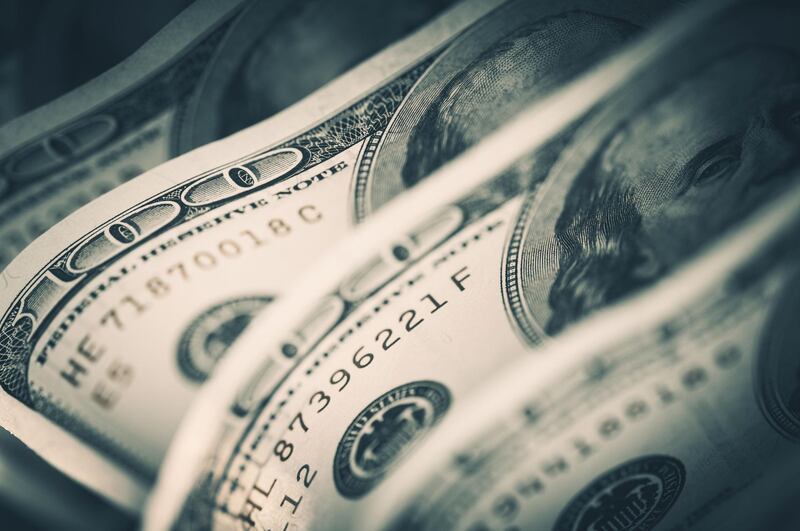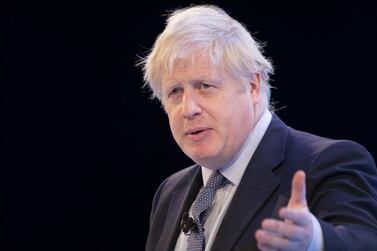November proved to be a stellar month for the US dollar. The US Dollar Index, a measure of the value of the currency against a basket of major currencies, gained 1.12 per cent month-on-month, while the US dollar/Swiss franc and US dollar/Japanese yen currency pairs hit five and six-month highs respectively.
The first few trading sessions of December saw bouts of weakness drag the greenback lower — on the back of a far weaker US ISM Manufacturing Index coming in at contractionary levels of 48.1 actual versus a forecast of 49.2 — however, the weakness should be short-lived.
Despite the US Federal Reserve cutting rates in October, it has maintained a rather dovish stance towards future rates, as the country's equity markets hit record highs in November. In the short term, watch for developments around the trade wars to drive US-based assets. All eyes will be on President Donald Trump in the lead up to the December 15 tariffs. The US is set to introduce an additional 15 per cent tariff on about $156 billion (Dh573bn) of Chinese goods and this could be averted if a trade deal is reached in the lead up.
Such an announcement would be a major boon for equities and currencies as markets would adopt a “risk-on” approach. While it is highly likely for this round of tariffs to be rolled back, keep an ear out for developments from Washington. In the interim, watch the US ISM Non-Manufacturing Purchasing Manager's Index due on Wednesday and the US Nonfarm Payrolls on Friday, which is expected to come in at 180,000. Any figure falling below expectations would see strong weakness in US equities and the dollar and vice versa.
Overall, I maintain my dollar long bias; if we see a delay in the December 15 tariffs, this would be perceived as optimistic which should lend weight to dollar bulls. Next week will see the release of US Consumer Price Index figures; expectations are for the core CPI figure to come in at 2.3 per cent year-on-year, while the month-on-month increase is expected at 0.2 per cent. This will be followed by the headline Fed interest rate decision. Despite strong overtures from the President at the start of this week — when Mr Trump tweeted about the central bank's "ridiculous policies" of the Fed" — I do not expect a cut at the December meet.
In the October meeting's minutes, the Fed noted that policy is “well calibrated” to support the economy unless there was a “material reassessment” of the outlook. Again, escalation of trade war developments — through the implementation of another round of tariffs — could force the Fed to act but this would not come into play until at least the first quarter of 2020.
Across the pond, volatility is set to kick off in UK pound assets with all focus turning to the country's imminent general election on December 12. Again, the political implications make it very difficult to predict. Looking at the most recent polls from the past weekend, the probability of a hung government currently seems the highest.
Prime Minister Boris Johnson will work tirelessly to form a majority through a coalition and if we have a clear-cut picture, this could see pound asset classes move higher. I suggest exercising caution before building positions in sterling and look at building a strategy only until after the election results are conclusive. The pound is trading near three-month highs to start the month, just under the $1.30 level, which I called as a strong resistance point in my last column. We could see upward moves above $1.33 with a favourable election result in the immediate aftermath of the result next week.
Meanwhile, my November views on the euro/US dollar pair and gold panned out perfectly and I continue to see opportunities in both. Starting with gold, the precious metal sold off rather aggressively in November, dropping more than 3 per cent month-on-month to hit three-month lows. Strong buying propped up gold above$1,445 per ounce levels. I was never convinced with the gold rally at $1,500 levels and it has remained under pressure ever since. Look at building long positions in the channel between $1,430 and $1,450.
The euro/dollar pair will continue to weaken and re-test $1.0990 levels, achieved on November 29, where it will find good buying support. While we could see some further upsides in the euro in the early parts of December, expect my earlier upside target of $1.1175 to hold with downsides floored at $1.0990 levels until the end of the year.
Gaurav Kashyap is a market strategist at Equiti Global Markets. The views and opinions expressed in this article are those of the author and do not reflect the views of Equiti








